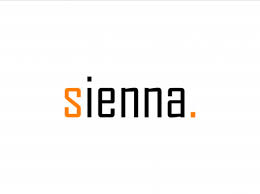
In this post I would like to offer some take-aways and personal thoughts on the recent OECD Conference on Technology in and for Society, held on the 6th and 7th of December 2021.
Innovating Well for Inclusive Transitions
The conference rationale was Innovating Well for Inclusive Transitions, based upon the arguments that the world faces unprecedented challenges in health, food, climate change and biodiversity, solutions for which will require system transition or transformation. The technologies involved may bring fear of negative consequences and problems with public acceptance, as well as raise real issues of social justice (primarily of equal access, thinking today about covid vaccination inequalities as an obvious starting point).
Good governance and ethics will therefore be necessary to harness technology for the common good.
Towards a framework for the responsible development of emerging technologies
The following is taken from the rationale page of the conference website:
The conference will explore values, design principles, and mechanisms that operate upstream and at different stages of the innovation value chain. Certain policy design principles are increasingly gaining traction in responsible innovation policies, and provide an organising structure for the panels in the conference:
Inclusivity, diversity and stakeholder engagement
Stakeholder and broader public engagement can be means to align science and technology with societal values, goals and needs. This includes the involvement of stakeholders, citizens, and actors typically excluded from the innovation process (e.g. small firms, remote regions, certain social groups, e.g. minorities etc.). The private sector too has a critical role to play in governance.
Goal orientation
Policy can play a role in better aligning research, commercialisation and societal needs. This implies investing in public and private sector research and development (R&D) and promoting “mission-oriented” technological transformations that better connect innovation impacts to public policy needs. At the same time, such innovation and industrial policies need to be transparent, open and well-designed so they foster deliberation, produce value for money, and do not distort competition.
Anticipatory governance
From an innovation perspective, governance approaches that engage at a late stage of the innovation process can be inflexible, inadequate and even stifling. More anticipatory kinds of governance — like new technology assessment methods, foresight strategies and ethics-by-design – can enhance the capacity to govern well.
The conference included round-table and panel events alongside institutional presentations, introductions and scene setting as well as wrap-ups. Video of each event is available via the conference website, supported by an introduction paragraph and series of questions.
One of the roundtables I attended may be of particular interest to Technology Bloggers readers as it was all about carbon neutrality:
Realising Net Carbon Neutrality: The Role of Carbon Management Technologies
Description
Reaching net carbon neutrality is one of the central global challenges we face, and technological development will play a key role. A carbon transition will necessitate policies that promote sustainable management of the carbon stored in biomass, but not exclusively so: technology is increasingly making it possible to recycle industrial sources of carbon, thus making them renewable. The idea of “carbon management” may capture the different facets of the answer: reduce the demand for carbon; reuse and recycle the carbon in the bio- and technosphere; and remove carbon from the atmosphere. But a reliance on technologies for carbon capture and usage (CCU) and carbon capture and storage (CCS) may present barriers for other more radical transformations.
● What knowledge is necessary to better guide national and international policy communities as they manage emerging technology portfolios for carbon management?
● What can more holistic approaches to carbon management offer for developing technology pathways to net carbon neutrality?
● What policies could ensure that one technology is not a barrier for implementation of another?
I took a lot of notes, including the following points:
What kind of technology and knowledge is necessary when steering the development of emerging technology?
There are both opportunities and challenges for finding the right mix between technology and policy
Carbon capture alone will not be viable, we have to reduce emissions
The energy transition will have to be dramatic but there is no international agreement on the phasing out of carbon fuels
There is an immediate need for investment, social acceptance and political will
Use technology that is available today rather than using language about innovation
Policy-makers have to see a whole picture, just cutting carbon from some of the big emitters will not be enough
Real structural change is necessary
The old economic sectors and the poor should not be those who pay
Success requires not only information, but communication
The truth about both economic and social costs should be available
Why not watch the video here? It’s just over an hour long.

